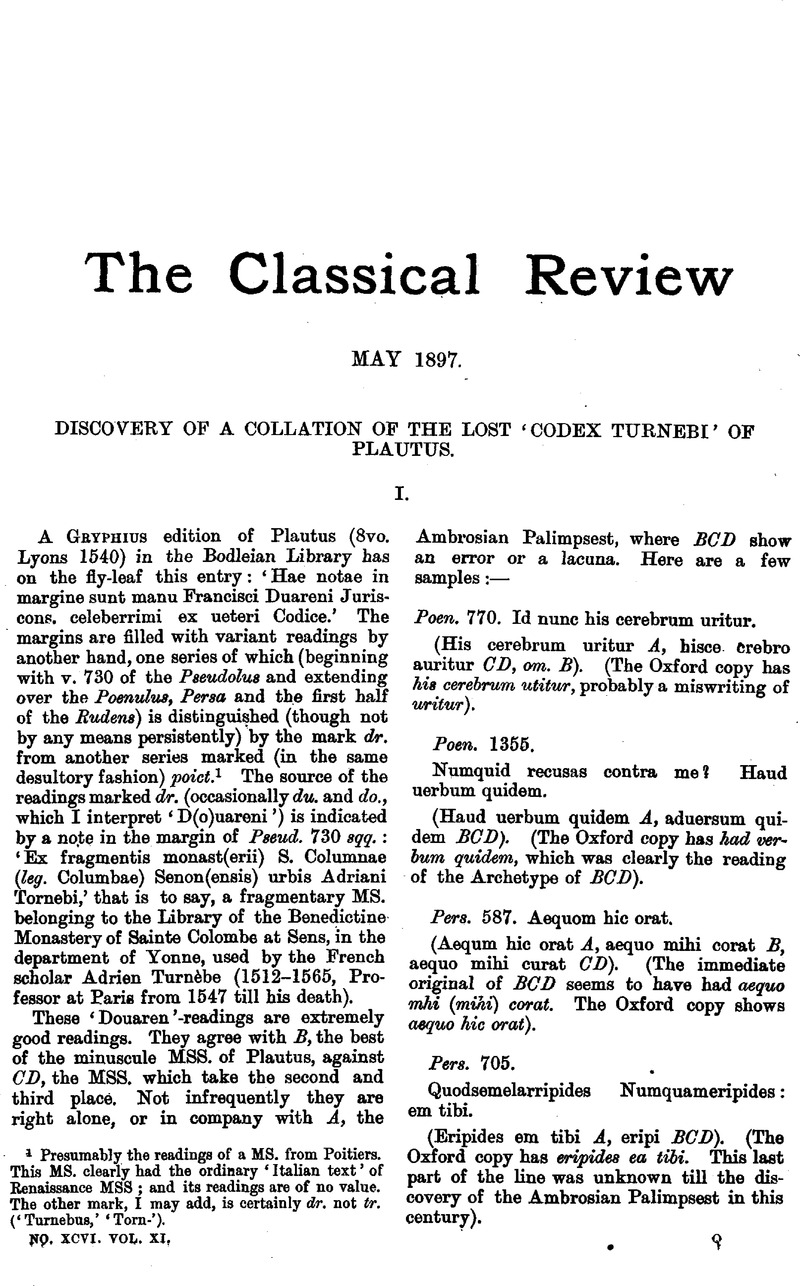No CrossRef data available.
Article contents
Discovery of a Collation of the lost ‘Codex Turnebi’ of Plautus
Published online by Cambridge University Press: 27 October 2009
Abstract

- Type
- Review Article
- Information
- Copyright
- Copyright © The Classical Association 1897
References
page 177 note 1 Presumably the readings of a MS. from Poitiers. This MS. clearly had the ordinary ‘Italian text’ of Renaissance MSS ; and its readings are of no value. The other mark, I may add, is certainly dr. not tr. (‘Turnebus,’ ‘Torn-’).
page 179 note 1 One is an Aldine edition of Spartianus etc. (Auct. II. R. VI. 54), which formerly belonged to the Pithon library (cf. Boivin, p. 97). Another is a Dousa text of Plautus (Auct. S. 5. 21) which formerly belonged to Joseph Scaliger and is filled with his annotations (cf. de Larroque, p. 341). I hope to write about this latter volume on a future occasion.
page 179 note 2 M. Le Breton has made a careful copy of this ‘variorum’ collation of Passerat, and was so obliging as to let me have the use of it for an edition of Plautus, which I am preparing. His Copy has been of very great service to me in deciphering the entries in the Oxford volume. The discovery that the ‘codex Turnebi’ was a Sens MS. really belongs to him ; for in his article in the Revue de Philologie he quotes from Passerat's Aldine the entry (at Pseud. 730): ‘Ex fragmentis … urbis,’ and calls attention to the fact that the subsequent variants are T-readings. The Oxford Gryphius, where the entry appears in full: ‘Ex fragmentis… Adriani Tornebi,’ removes the last possibility of doubt.
page 179 note 3 I am indebted for this information, and for a great deal of other help, to the courtesy of M. Dorez of the Bibliothèque Nationale.
page 180 note 1 This is the regular order of these plays in the Palatine family of MSS., and in the early printed editions.
page 180 note 2 Douaren, or whoever was the writer of these marginalia, has stopped abruptly without finishing the passage, which ought to proceed ‘adulescens, modo senex, Pauper, mendicus, rex, parasitus, hariolus.’ He does the same with Pseud. 1051, writing merely Ita ac triumphi, and no more.


